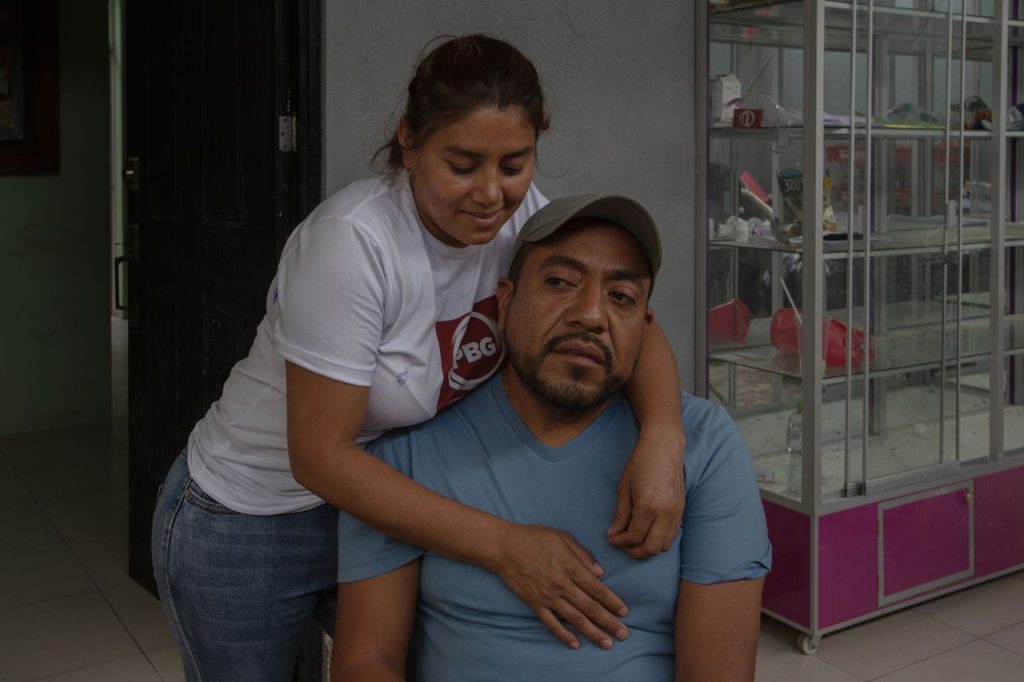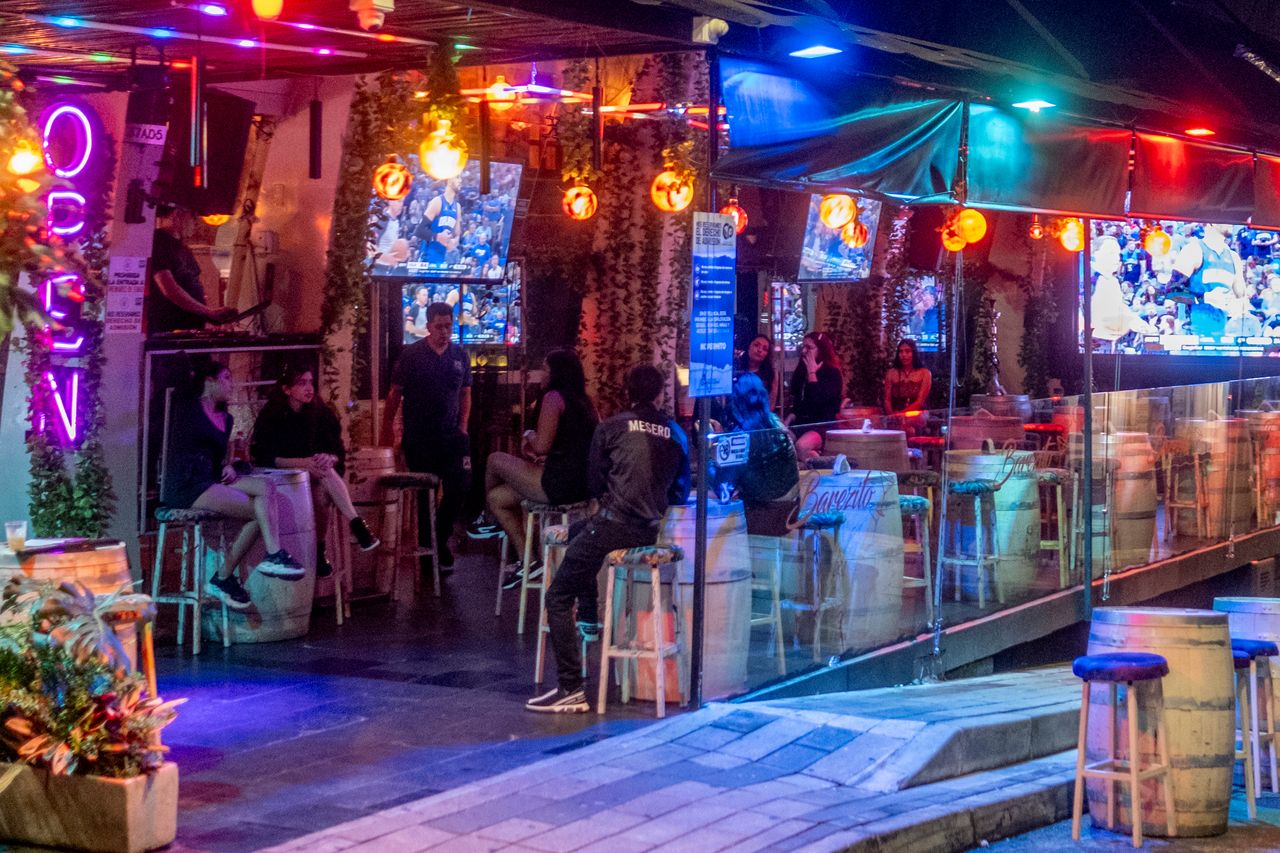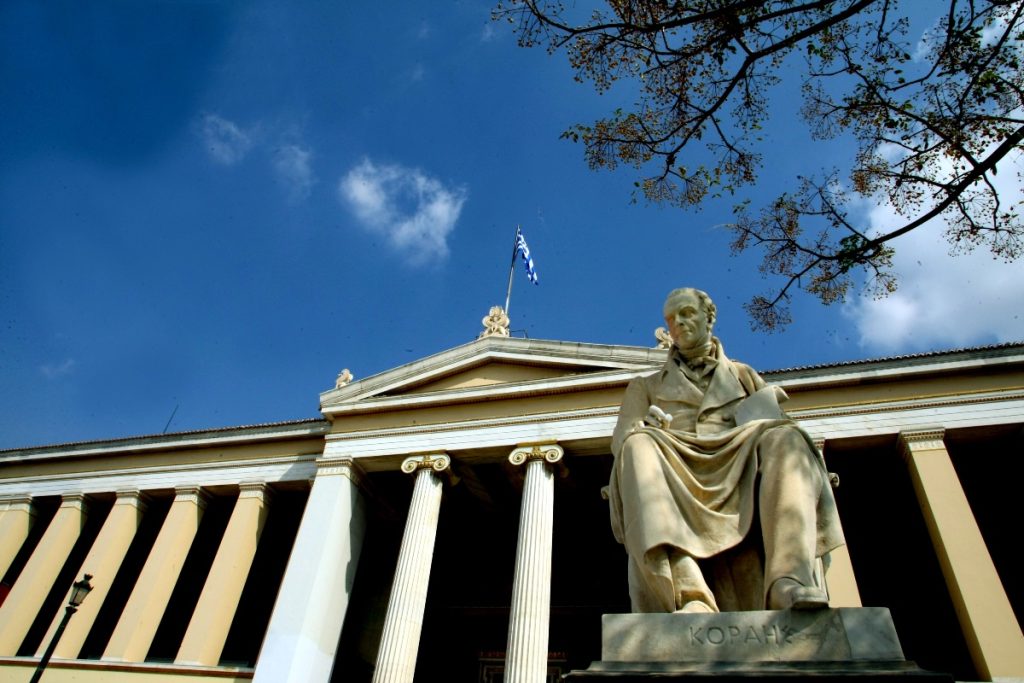MEDELLÍN, Colombia—On 45 trips here over two years, a Florida pharmacist named Stefan Correa sought out underage girls, whom he would sexually abuse in the boutique hotels of the elegant Poblado district popular with American travelers, Colombian police said.
A child-sex-trafficking group in Medellín experienced at organizing young girls for American sex tourists made sure that Correa was paired with the skinny virgins he said he preferred, according to Medellín police and a federal indictment in Miami against Correa.
“Is she going to allow me to go all the way, or is she going to cry and ask me to stop,” Correa wrote in text messages to the trafficker in mid-April, the indictment said.
Days later, special agents from Homeland Security Investigations arrested Correa as he was boarding a flight in Miami for Colombia and charged him with attempted sex trafficking of a minor. Correa told officers he had made numerous trips to Colombia to have sex with young girls, according to the indictment. Correa, who pleaded not guilty during his arraignment, goes to trial in mid-June and, if convicted, faces 15 years to life in prison. His public defender didn’t respond to calls and emails seeking comment.
In the last three decades, Medellín has shed its image as capital of the world’s cocaine trade, with homicides falling 97% since the days when cartel kingpin Pablo Escobar ruled. Cheap living and an eternal springlike climate has, since the pandemic, lured an influx of foreigners, among them tech entrepreneurs, digital nomads and foreign retirees—so many that locals complain of skyrocketing housing costs.
The appeal of a far safer city also attracts sex tourists, many of them American, who come here searching for underage girls often managed by organized-crime groups. U.S. investigators have charged some Americans with filming sex with underage girls, then posting it online for profit. Medellín officials say child predators take advantage of the city’s booming nightlife, in which legal adult prostitution flourishes, to help cover their tracks. While the age of consent in Colombia is 14, the minimum age for sex work is 18.
“It would be easier for us to just look away and pretend it’s not happening,” Mayor Federico Gutiérrez said in an interview. “But I’m not going to ignore it. We want to confront this.”
While a tiny fraction of the 1.5 million visitors that Medellín received last year were engaged in child sexual abuse, Colonel Juan Pablo Cubides, who leads the Colombian police’s child-protection unit, said the number of victims that authorities are uncovering has been alarming.
Police have identified 72 underage victims. They are working to locate at least 250 others whom authorities learned about as they investigated cases or saw in pornographic videos and images seized from suspects. Authorities have arrested 12 foreigners on child-exploitation charges in the past year, a record, Cubides said.
Driving some of the activity, police say, are dozens of crime syndicates in Medellín—including one offshoot of Escobar’s cartel—that have added catering to sex tourists to their drug-trafficking and extortion activities.
Identifying and locating both victims and victimizers is challenging in a city where trafficking rings use encrypted chat apps and cryptocurrency payment channels to escape detection. Underage girls in Medellín’s slums are also steered into prostitution by their own families, Cubides and activists said, dimming the chances of a formal abuse complaint ever being filed.
“It is a huge challenge when you’re trying to change a culture here,” said Cubides.
In Medellín each night, hundreds of sex workers in brightly colored dresses stand around Lleras Park in the ritzy Poblado district, where they court male tourists.
The government here has responded with an anti-child trafficking campaign, putting up billboards in the Lleras Park neighborhood, which is filled with bars, restaurants and hotels popular with tourists.
“Don’t even try it, it’s a crime,” read billboards in English that feature an image of a middle-aged man walking alongside a young girl. The billboards warn that those convicted of child sexual exploitation can be sentenced to 25 years in prison.
Colombia’s migration agency has recently posted videos on social media of foreigners, their faces blurred, being denied entry at Medellín’s airport on suspicion that they had come for sex with minors. Authorities said the tourists were flagged by Angel Watch, a U.S. Department of Homeland Security system that alerts partner nations when American sex offenders travel there. The mayor lauded the expulsions as evidence of increased cooperation with U.S. law enforcement.
Police along with child-protection groups and community organizers for the city patrol Lleras Park and have set up checkpoints to prevent minors from getting in. Still, some city social workers acknowledged that the measures may not be enough because fake IDs are easy to get.
“As a mother of two, I have to step away and cry sometimes,” said Paula Garcia, a lawyer and community organizer in a rough Medellín barrio, where traffickers have recruited underage girls. On a recent night, she was with the mayor’s security council looking out for minors and encouraging sex workers to leave Lleras Park. As police escorted two suspected minors out of the park, dozens of sex workers stood by and carried on. Many simply move a block away to avoid the police.
Among those working to fight against the problem is Tyler Schwab, a Wyoming native who heads Libertas International, an organization that has been working with Colombian and American law enforcement on child-predator investigations for the past five years. His group helps police track down accused pedophiles in the U.S. and other countries and offers counseling services for victims. It also helps remove videos that child abusers post on the internet.
“A lot of these guys come down thinking they’re immune and some justify it to themselves like ‘Well, these girls need the money anyway,’” Schwab said at a Medellín mall, where he was buying gifts for the victims in his program, one a 13-year-old girl. “I love my country, but seeing the worst of the worst come down to commit these crimes is an injustice that I couldn’t sit with.”
Some investors in short-term rentals have been unnerved by city officials and police calling for greater regulation of digital booking platforms and threatening to seize properties used for child exploitation. The apartments often lack security guards or receptionists. Colombian police say they have impounded 10 apartments in the past year and expect more cases as investigations with U.S. Homeland Security advance.
Airbnb representatives pledged to help authorities root out sex offenders while better training hosts to report abuse. “While reported issues on the platform are rare,” the company said, “we have long been committed to using our global reach to assist in the worldwide effort to end human exploitation and trafficking.”
Brad Hinkelman, chief executive of Casacol, the largest Airbnb operator in Medellín, said tackling the sex tourism-business is as much in his interest as the city’s because guests complain about the prostitution outside the hotel doors in the online reviews they leave.
“I have been a front-row witness to a precipitous decline in tourism quality in Medellín,” said Hinkelman, who owns four hotels and rental buildings around Lleras Park.
One of his buildings was shut down after an Ohio man was found with two minors—ages 12 and 13—in a hot tub earlier this year, triggering protests against foreign travelers by angry residents. The Ohio man was released after a short detention and fled the country, leading Colombia’s inspector general to open disciplinary actions against eight police officers for letting him go. Hinkelman said he provided investigators videos to show how the man bypassed the building’s overnight security guard.
In interviews with the victims, Cubides, who heads Colombia’s child-protection unit, said police learned the Ohio man had been finding minors through a trafficking network. Tracking that network led to Correa, the Florida pharmacist. And one of the minors found in the hot tub reported to police that Correa had been paying her rent and regularly sent her money.
On his April trip to Medellín, Correa had planned to pay girls by giving them iPhones, according to a transcript of his text messages in the Miami indictment. A search of his belongings at Miami International Airport turned up nine phones containing at least 50 videos of his sex acts with girls as young as nine, said the indictment.
“The war against exploitation of children in Medellín is just beginning,” Mayor Gutiérrez said, “and we’re going to hit them with everything we have.”
Write to Kejal Vyas at kejal.vyas@wsj.com




